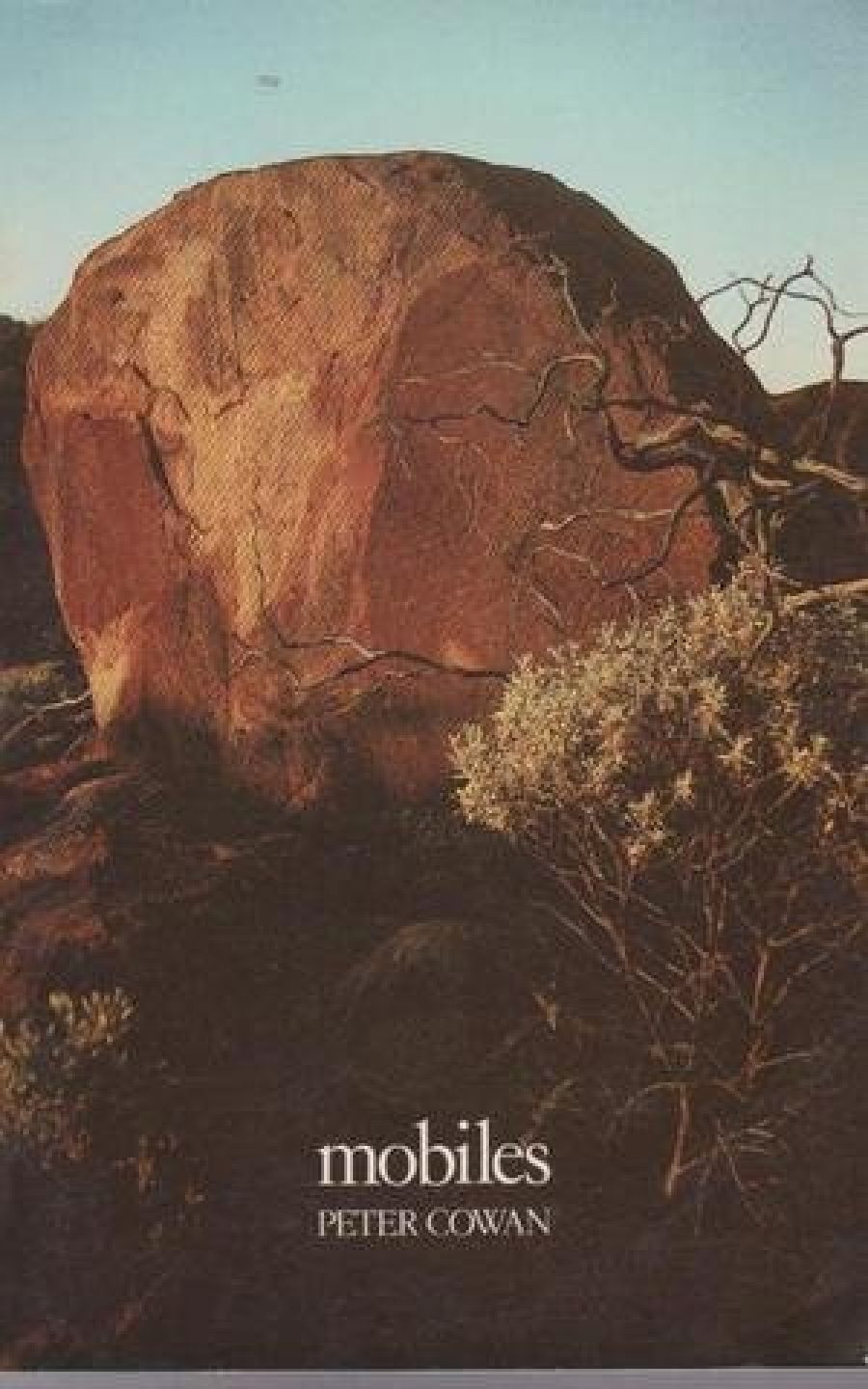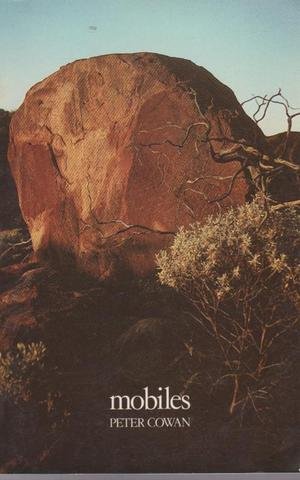
- Free Article: No
- Contents Category: Poetry
- Review Article: Yes
- Article Title: Regional Publishing Success
- Online Only: No
- Custom Highlight Text:
The phenomenon of the Fremantle Arts Centre Press in Western Australia is one of the instructive publishing success stories of the past decade.
It is a frankly regional venture, and by concentrating on the local market and the immediate writing scene it has built up a secure base of interest – and sales. Out of a real or imagined (but widespread) sense of slight, or exclusion, has emerged the one thing most likely to resolve that carping insecurity: direct action aimed at self-sufficiency. It is important to recognise this motivating force. But it is important, also, to look at the consequences of that initial do-it-yourself bravado.
- Book 1 Title: Mobiles
- Book 1 Cover Small (400 x 600):

- Book 1 Cover (800 x 1200):

The Fremantle Arts Centre Press established the immediate principles of realistic print runs (several titles have sold out) and modest but elegant production. If some of the early titles seemed to suggest encouragement of a fairly provincial regionalism, they did set out, also, to provide .a forum for growth and development. Once, for instance, a verse collection like Lee Knowles’ Cool Summer appeared (in 1977) a certain standard was set by which future poets must be judged. And this is surely the best way of securing growth: self-criticism and an internally focussed base of standards. Far better than the in-jetting writer or lecturer from the East arriving to judge a competition with upraised eyebrows and head-patting solicitude. It is almost incidental that (to take the above example) the work of Lee Knowles is shamefully unknown in the East. That will come. The real importance is in that growth, from within the active writing context, of a standard that admits possibilities.
The four titles recently produced give a fairly clear indication of the way editorial policy has moved since inception.
Wendy Jenkins and Andrew Lansdown are given first collections in the new Shoreline booklets, which are based on the excellent principle (initiated in this country by Makar’s Gargoyle Poets, now sadly terminated) of giving new writers a volume large enough to present themselves and their work for scrutiny without the temptation to pad out the collection simply to make up a ‘book’. This means the writers break through the barrier of anonymity earlier, while still being encouraged to work towards the goal of a full-scale book. The work is exposed to review and criticism in a way that directs us towards ‘promise’.
Wendy Jenkins has a more individual voice, and her poems with water and sea in them have an implosive energy that more than balance the occasional apprentice fingerblurr. ‘Diver’, for instance, is as poised as its subject:
He is not of water.
Even the air knows this,
gusting from his mouth,
quick as a wave and white
to strike a difference.
All things move from him.
And some of the later poems have a sardonic playfulness that suggests not only energy:
Flash Gordon touched down
but racked off quick,
when they confiscated his ray gun
and laughed at his silver lurex tights
…
Robin Hood had just wired back,
MERRY MEN, GOOD SPOT, COME
QUICK
when the first power saw hit the trees
Andrew Lansdown (Homecoming, Fremantle Arts Centre Press, $2.50, 29 pp) is in many ways a more fragile poet. His almost pointillist lyrics are certainly more convincing than his occasional venture into myth or history. His reliance on detail and balance can teeter into the precious or the inconsequential but at his best he shows genuine delicacy of touch:
Trees haggle about the lake,
Frame the wood ducks, ripple and
wake.
I am not one to make a noise,
But they swing to, detect my poise:
Smash the water with their wings.
Whistle to the air, snapping things.
One would wish he might look at the way William Hart-Smith (a longtime W.A. resident) achieved delicacy without losing, also, a down-to-earth firmness. The two short story collections consolidate the prose programme of this Press rather than extend possibilities (we wait for the first novel, perhaps, to do that). White River (Fremantle Arts Centre Press, $3.95, 85 pp) is a random gathering of short pieces written by Justina Williams over a fairly long period. I liked their ‘period’ authenticity, was somewhat bemused by the author’s need (sign of Times Past?) to make most of her narrators men, and most interested in the yarns based on worker resistance and the brutalising end-results of large systems (‘White River’ and ‘Blowfly on the Moluk’). The style is social realism and thought at times drenched with a somewhat wordy plainness. It works best when dealing with observation rather than psychological nuance. I would have preferred to see a few more hard hitting pieces and more such observation. But then, I would have preferred to read more of Justina Williams’ observations as a woman.
Peter Cowan’s Mobiles (Fremantle Arts Centre Press, $4.25, 102 pp) reveals how Cowan has pared down his angry, aggrieved view of his fellow man to a terse elliptic set of slaps. His themes of aggression, betrayal and brutalised insensitivity (landscape as participant) are brilliantly and depressingly honed and, read separately, the stories have a searing insight. The author’s own sensitivity seems to wince, and grit harder. For this reason the longest story, ‘The Lake’, is perhaps the most successful because its very length and the necessity to expand themes and images also force Cowan to balance the flow and exposure of his material. Some of the terser pieces seem almost viciously pared. This works in ‘Collector’, ‘A Touch of Love’ and ‘The Brown Grass’, as well as in the title story; but it moves dangerously close to self-parody when the theme is either too melodramatic (‘Up North’) or inconsequential (‘SEMINAR’). Cowan is a major writer, however, despite certain restrictions – perhaps because of them. Mobiles is the most important collection of short stories yet published by the Fremantle Arts Centre Press, if also the most depressing.


Comments powered by CComment